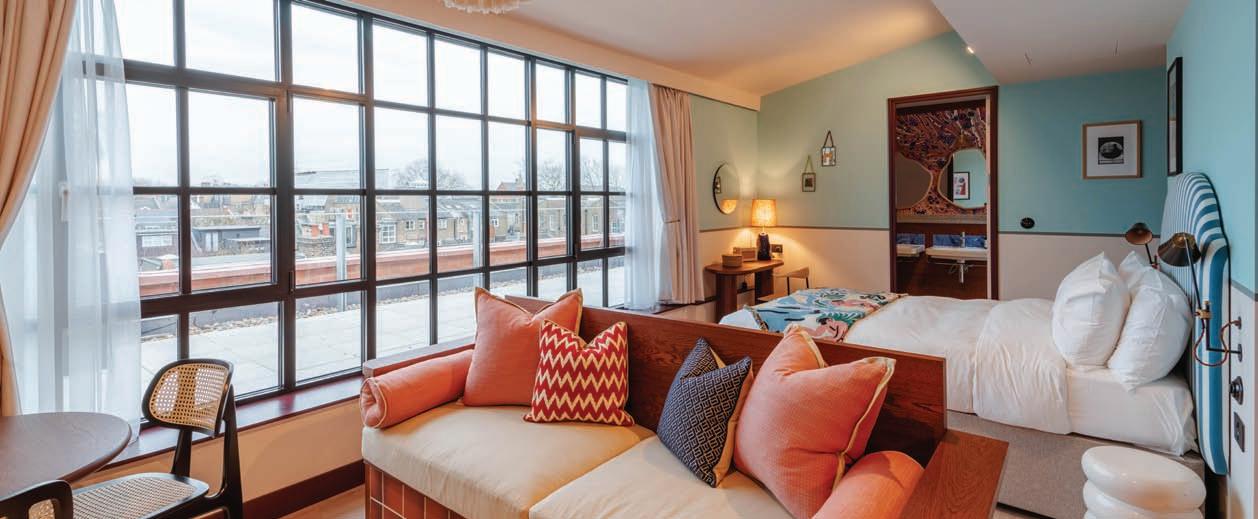
19 minute read
HOTEL OF THE MONTH
A VENUE FOR THE ECO-CONSCIOUS
room2 Chiswick
The world’s first fully net zero hotel in Chiswick opened at the back end of last year. The green retreat offers a relaxed combination of home and hotel whilst encouraging guests to embrace a sustainable lifestyle. The pioneering opening sets a new global industry standard for environmental responsibility in the fight against climate change and proves sustainability doesn’t mean sacrificing style, convenience, or comfort. In a time when reducing the impact of climate change is more important than ever, room2 Chiswick is an ideal destination for eco-conscious and responsible travellers looking for the ultimate stay in London. room2 Chiswick uses 89% less energy per m2 compared to most UK hotels, and it is the first hotel in the world to fully account for its entire carbon footprint, making it ‘whole life net zero’. Being whole life net zero means both embodied and operational carbon have, and will be, rebalanced throughout the entire hometel’s lifecycle. All emissions associated with the hometel’s production and construction; materials used, operations, maintenance, refurbishment, and eventual clearance of the building will equal zero. room2 has also signed the Glasgow Declaration on Climate Action in Tourism and is committed to accelerating climate action to cut global tourism emissions.
After successfully working on the net zero roadmap with the aim of being net zero by 2030, we interviewed Melissa Gooding, Sustainability and Communications Officer at the innovative hometel brand, Lamington Group, to find out some of the wider details and what’s next for room2.
Tell us about room2 and the hometel element.
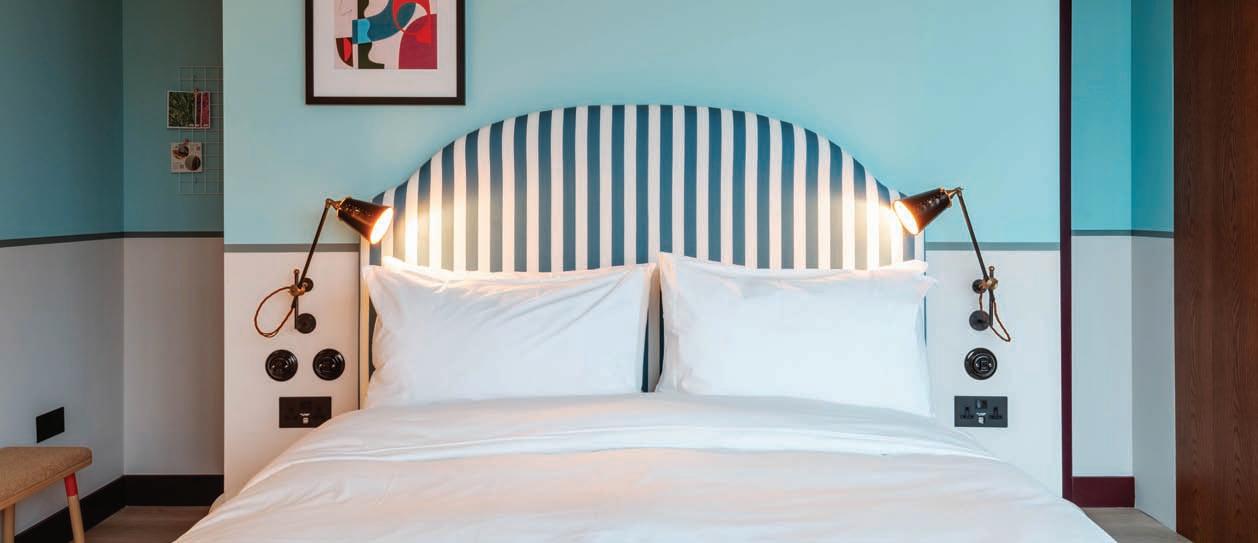
know that we will never make a room exactly like our guests’ homes, but we want to make them feel at home via all the amenities and flexibility which they have in their house in order to be the best version of themselves. We strive to deliver the best bits of hotels in terms of the service, the security, the consistency, access to a lovely restaurant and having everything clean and tidy. Although it’s relevant to everyone, the concept of ‘home’ is something which is quite difficult to pin down as it is also something which is quite personal, so we didn’t want to be a home away from home, but give the feeling of home.
Can you tell us about the recycling element to each guest room?
We believe that we are the first hotel to offer three-in-one recycling to guests, and we have tried to make it as easy and as attractive as possible. We designed our own bespoke three-in-one bins as we couldn’t find anything on the market that fit our criteria whilst also looking aesthetically pleasing. This is part of our zero waste to landfill policy. We communicate with guests about where exactly their waste goes afterwards, whether it was made into energy or recycled into new products – they are made aware.
The venue is the world’s first fully net zero hometel. What contributes to this throughout the entirety of the venue?
Current best practice looks at the operational carbon of a hotel but we have gone further than this by being fully net zero, which means we measure the raw materials, transportation, any refurbishments which are done and the eventual end of life of the building. We’ve measured these components and reduced them where possible through a variety of technologies; such as ground systems which are about 30% more efficient than traditional heating and cooling systems and also by having solar panels in the roof which meets about 5% of the energy demand of the building. Another method we have used is using a low domestic water heater in which we only heat the water to 45 degrees, whereas most hotels would heat it to 65. Then we use chlorine dioxide to mitigate. At the moment, there is unavoidable carbon which we can’t reduce and this is accounted for in our calculations; we measure what’s inevitable and then we offset through an afforestation
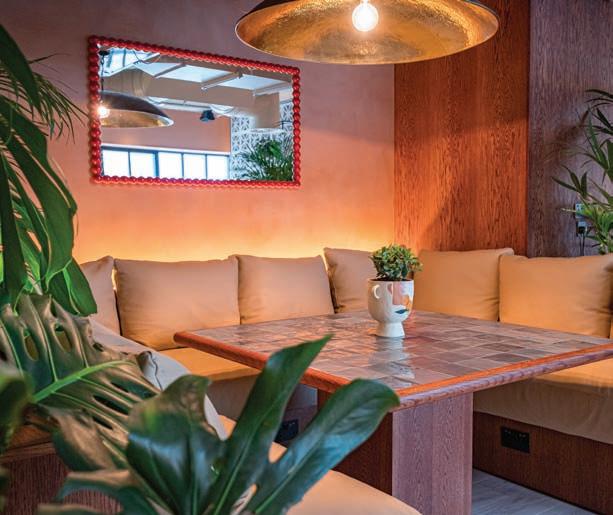
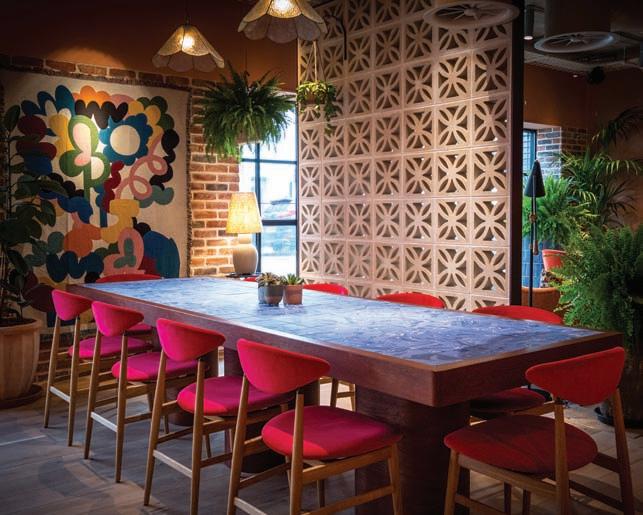
project.
When deciding that room2 was going to be a sustainable venue, was this in order to appeal to broader clientele or as a means to keep up with the demand?
I guess we did it because, firstly, we feel like we absolutely have to. Our Managing Director at Lamington Group, Robert Godwin, initiated a massive shift in 2019 and decided he would change the company’s approach to putting sustainability first. The IPCC has issued a code red for humanity for the climate crisis so it was something that gave us a wakeup call. As a result of this, we have definitely attracted a broader interest through more sustainablyminded travellers, but also a lot of corporates who want to align with reducing emissions. Other corporates have come to us as they agree with our mission and have specified that they will only stay with hotels who have these emissions in place.
room2 as a brand is a sustainable one, tell us more.
We’ve committed, going forward, to only building whole net zero buildings. Our Southampton branch was built before our wakeup call, but we’re now taking measures to retro-fit it where possible. For instance, we’ve put solar panels on the roof, we meet about 5% of the energy demands and we put restrictors into the taps to reduce the water consumption down to six litres.
As a relatively new venue which has thrived in such a competitive industry thus far, how has the sustainable element contributed to such successful marketing strategies?
Booking.com in 2021 showed that 73% of people would be more likely to choose accommodation if it has implemented sustainability practices and this is something we are aware of. It also shows that we are thorough. The terms ‘carbon neutral’ and ‘net zero’ are often thrown around, but with us being fully net zero, it shows that we have measured our emissions, most of which now come from the ones embodied already which provides us with a huge unique selling point.
Along with the sustainability aspect which has massively helped room2 stand out, one thing which stood out to us was the interior. Can you tell us about what inspired the interior?
One of the inspirations comes from arts and crafts as there’s quite an eclectic mix of craft stories, which demonstrates that dexterity is an essential part of the human experience. Parts are also inspired by William Morris and local sites such as Kew Gardens. An abundance of local artists’ work is shown throughout the hotel, such as the prints in the rooms and the handmade mirrors in the bathrooms. Everything has a story to tell, whether that’s the carpets made from recycled fishing nets or the local sourcing of products. Nearly 100% of the bespoke loose furniture is made within ten miles from the site of room2.
To conclude, what’s next for room2 as a brand?
5,000 hotel keys by 2030 is our main goal. Lamington Group has developed a room2 net zero building specification, so for all future hometels, they will be built to the same standard. Our aim in the future is to continue reducing embodied carbon, so there will be lots of effort put in to how and who we can work with to keep reducing this.
@room2hometels
Where versatility, usability and individuality count
X10
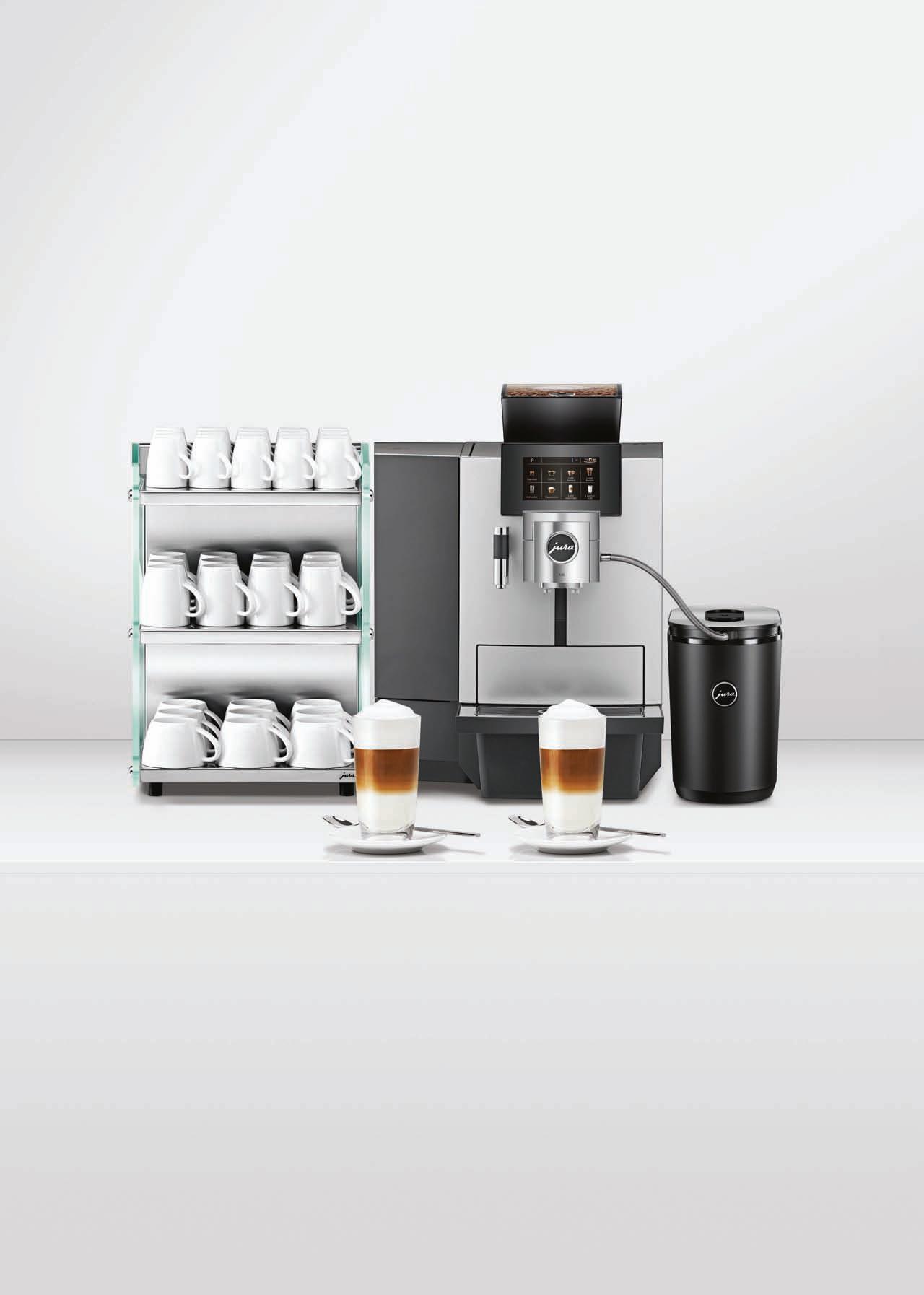
Freshly ground, not capsuled
Customised coffee via 4.3" TFT display thanks to One-Touch function for 31 programmable specialities. Professional Aroma Grinder for ideal grinding results over the entire service life One-Touch Lungo function for delicious, aromatic barista specialities
Jura Products Ltd, Vivary Mill, Vivary Way, Colne, Lancashire, BB8 9NW Tel: 01282 868266 Fax: 01282 863411, ProfessionalEnquiries@jura.com Ideal areas of use: Pub bars, small bistros, barista bars, coffee lounges, private clubs and function areas
Recommended maximum daily output: 80 cups
BACK OF THE NET… ZERO
As sustainability becomes a key emphasis through a number of industries, we explore why it is crucial to the hotel sector and the benefits more tenable decisions can bring to a business.

As the saying goes, we are only gifted with one body, which is why we must look after it and, simply, our planet is the same. The more ecoconscious we are now, the greater the effect we will be have on our future.
As the demand for a greener future grows across the board, it poses the question: ‘how do we navigate our way through the sustainability journey?’ and while no hotel can change the course of global warming on their own, every little helps.
Due to the attention on sustainability, several government bodies are helping businesses to act in that direction. The first thing to do is to check how your local institutions are supporting sustainable practice with initiatives such as bonuses for renewable energy resources, or partial refunds to those who invest in hydric systems to avoid water waste.
General Manager at the Grand Hotel Villa Serbelloni in Lake Como, Jan Bucher, explained that guests are becoming more and more attentive to these aspects: “We think it’s a good thing because the only way to make meaningful changes is through the focus of the public opinion. I think that sustainability is not just an option anymore.”
It’s a common belief that it’s better to start from the simplest tasks, but Jan thinks that the opposite strategy is better: “The longer a change takes, the earlier it has to start because a vision is needed.
“We suggest to reduce (or avoid when possible) the
All images courtesy of Villa Lena
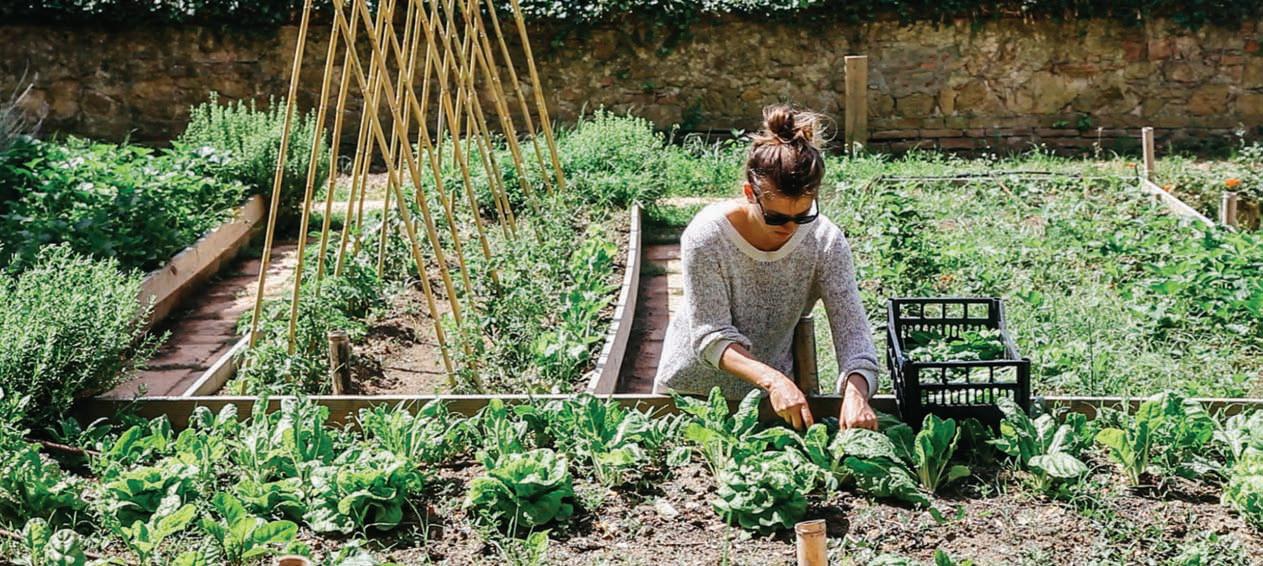
plastic packaging, to select fish from sustainable fishing, to increase the local and seasonal products in a hotel menu, to buy electric devices with low energy consumption… the options are endless and there’s always something that can be done better.”
In the EU, there are several initiatives to increase the sensitivity towards the argument, and Jan explained that at the hotel they implement them within the management. The team also gives a ‘welcome letter’ to new employees expressing the values.
Owner of Amada Colossos Resort in Rhodes, Aris Soulounias, realises that every hospitality business is unique, and commented: “As sustainability grows to a holistic concept that touches every single part of our operations - from technical implementations regarding energy consumption, water consumption and material/ waste management to the importance of educating the teams and promoting local businesses - there are a wealth of actions for each one of us.”
When embarking on a sustainability journey within a business, Aris sees that the most important step is to find the expert consultant who will guide you through the process and then draft a baseline report to understand where you are now, what the areas of opportunity are for your business, and which challenges you will have to overcome: “This step is crucial for your planning as you must, first and foremost, understand the needs and necessities of your hotel as well as your destination.”
At Amada Colossos Resort they have taken a series of strategic interventions in their facilities to maintain a lower carbon footprint, including all windowpanes and frames (an area of 2,000m²) that are energy efficient and all the heating and cooling in rooms and public spaces is handled by chillers and inverter pumps, reducing energy costs by three times. They also use LED technology light bulbs and light strips in all light fittings around the resort, reducing
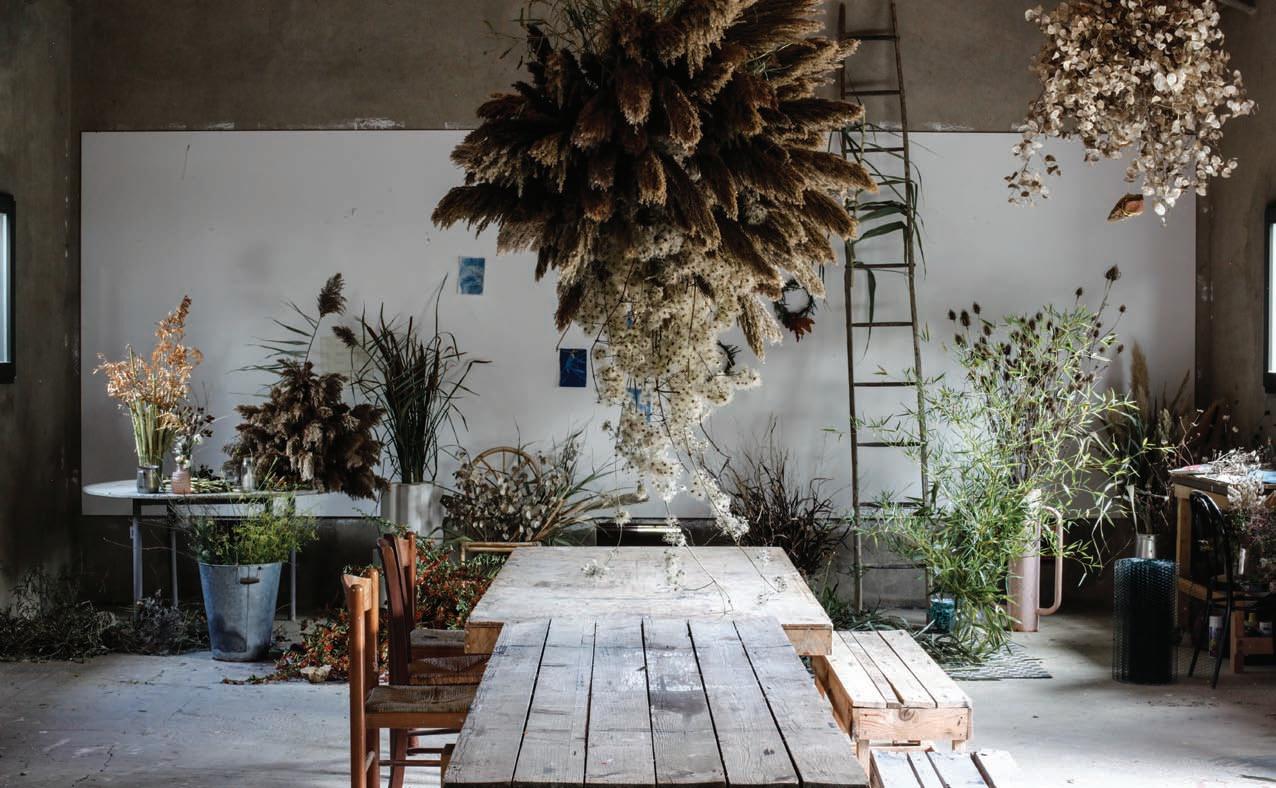
energy consumption and maintenance requirements. Furthermore, the resort have reorganised their waste management system and have introduced source separation activities to increase recovery and recycling of waste, also adverting their disposal to the landfill.
In our brave new world, responsible operations are the foundations of a healthy and successful hospitality project. Aris believes that, as hoteliers, you are ambassadors and trustees of your destinations: “Protection and respect towards the social and physical environment contribute to that end, not only by minimising certain costs but also by proving tangible proof points of our commitment to the destination via our sustainable choices.”
Stacey Fleming is the Group Director of Operations at Highland Coast Hotels, and she believes that there is no direct path to follow surrounding sustainability, it is more important to make steady changes that will, in turn, allow you to develop into a sustainable and greener business. At Highland Coast Hotels, they implement a variety of sustainable measures. Each of which would be a great start for hotels beginning their sustainability journey. These include: eliminating single-use plastics, introducing a laundry policy to reduce unnecessary water usage, meal planning to minimise food wastage and, wherever possible, sourcing food from local suppliers to reduce ‘food miles’. The hotel group is also minimising their use of energy, for example switching off lights when leaving a room and asking housekeeping staff servicing rooms not to switch on lights and TVs.
Stacey commented: “It is incredibly important to consistently monitor your own personal carbon footprint.”
The hotel sector currently accounts for 1% of global carbon emissions, and as part of Highland Coast Hotels’ Environmental Plan, their intent is to minimise the business’ impact on the environment, protecting it, and enhancing it wherever possible. This is particularly critical in such a fragile and sensitive area like the Scottish Highlands.
“In order to do this, we have a clear set of principles which will govern our activity, and a clear agenda of ‘Achieving Carbon Neutrality’ set around the three clear principles of measurement, reduction, and off-setting.
“People have a tendency to overcomplicate, and as a result, fear sustainability. We need to ensure that everyone is aware of the bigger picture and that by us all making small changes, together we can achieve something far greater.” Stacey added.
A big focus for Highland Coast Hotels is to introduce e-charging points across their portfolio to encourage the use of electric cars by guests and other users of the


The complete hotel bike subscription package







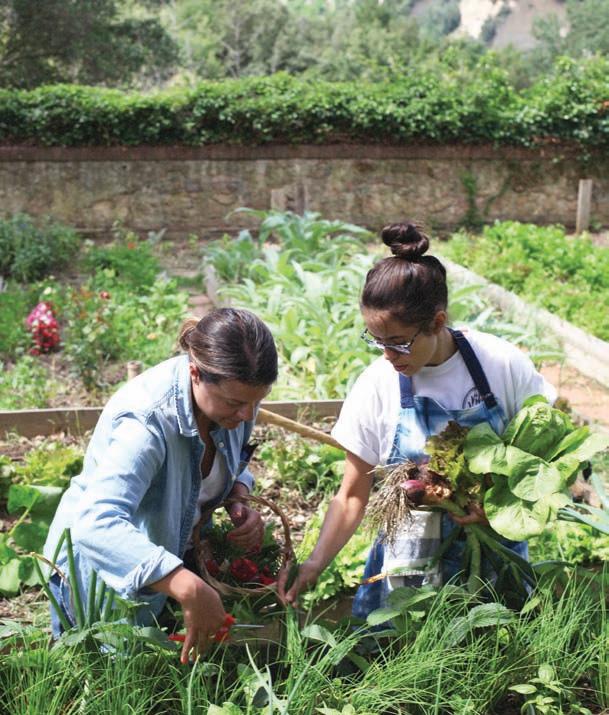
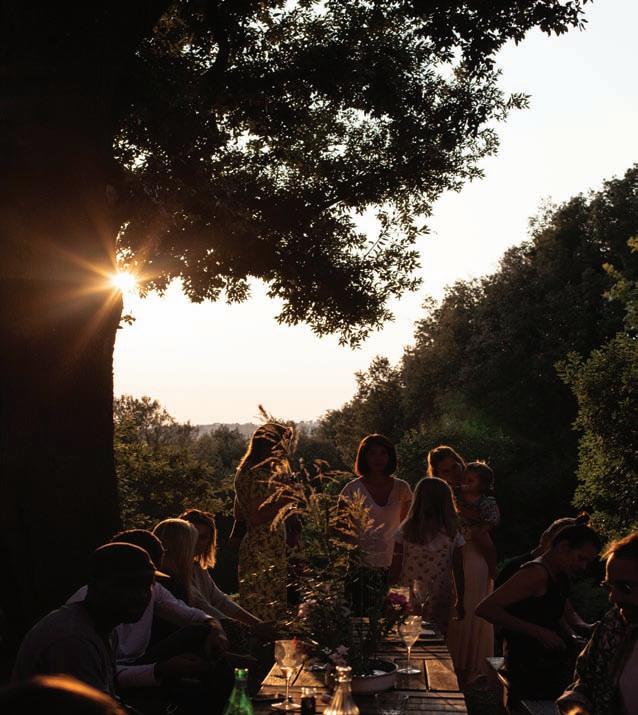
NC500. As a team who understand the fragility of the area’s ecosystem, and with the ever-increasing level of tourism, they are keen to ensure that their guests can travel responsibly: “This will also, in turn, contribute to a greater consumer experience, as it allows our guests to travel via electric car and we will become far more accessible to everyone.” Stacey concluded.
At Villa Lena, sustainability isn’t merely a lifestyle choice, it is at the absolute heart of what they do. Over the past six years, the team at the villa have made a conscious effort to invest into both large and small changes in order to be sustainable - from solar panels and large water recycling plants, to cutting out any single-use plastic.
Hotelier and Founder of Villa Lena, Lena Evstafieva, notices that committing to big infrastructure changes at the beginning can be difficult. So, in terms of advice, it is important to start from small everyday choices. Avoiding plastics could be a good beginning.
“In our opinion, you run the risk of falling behind if you don’t adapt and actively make changes to be more sustainable,” Lena added.
Being sustainable is more than a trend. In the world we live in today, it is our responsibility to build a sustainable future and business. In the hotel sector, the conscious use of resources is essential. The success of hospitality businesses is dependent on its ability to preserve the natural and cultural features that entice travellers to visit its regions. Failure to do so has consequences.
Lena explained that small details could make a big difference: “Starting from recycling is important and easy at the same time. Start small and then work on bigger plans to change infrastructure.
“We have air conditioning in our rooms, but we also have a sensor that stops the air conditioning when someone opens the window: this is an effortless choice to reduce energy waste and consumption.
“It is important to use local suppliers as much as possible. Choosing local products and services is significant for communities, a very sustainable choice.”
One of Villa Lena’s key objectives is significantly reducing their overall carbon footprint and energy consumption. The villa runs roughly 65% of the estate on green energy, having invested heavily into cutting-edge renewable energy sources, including solar panels and ground source air pumps. In addition, upgrading insulation in older buildings and motion sensor light switches in communal areas allow the villa to conserve energy even more efficiently.
There are so many opportunities to improve energy, water, and waste efficiency in hotels, you just need to figure out where to start, but as we’ve established, you mustn’t leave it too late. In order to ultimately stay at the forefront of a guest’s mind, you need to ensure you’re keeping up with the demands of the industry and, as consumers pine for a positive and healthy future, making conscious decisions is the way to do this.


GREEN ACCREDITATIONS
By Oliva Jayne Shepherd
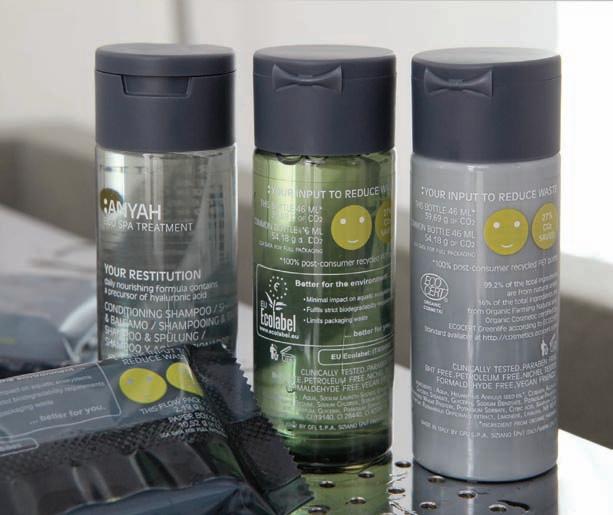
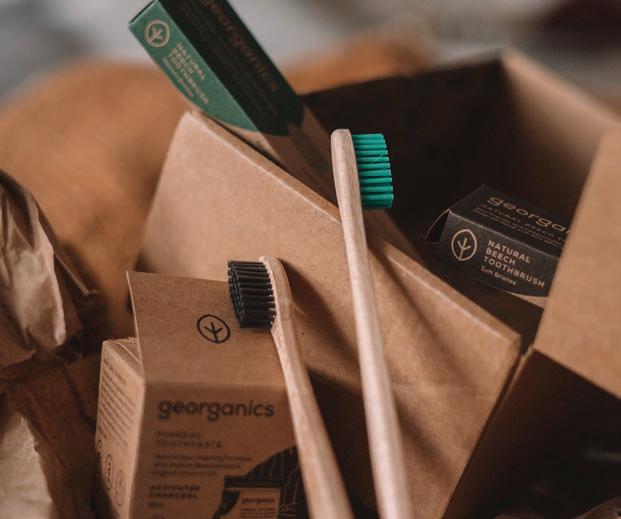
The new generation of guests and diners are increasingly making buying decisions based on the vendors approach to sustainability issues. The young are driving demand for environmentally friendly products and practices, and at the same time educating and encouraging the older generation to do the same. Even those that still want to deny the need for sustainable practices, cannot deny the sentiment of others.
So, how can a hotel demonstrate a comment to sustainable practices and attract this wave of eco-savvy consumers? A great first step is to obtain and promote one of these green accreditations.
Green Tourism Award
Green Tourism encourages businesses to participate in improving sustainability within the industry by adopting greener practices. People, places and planet are key focus points for this organisation: promoting engagement with local communities, protecting the natural environment and commitment to reducing the carbon footprint of the industry. Tourism businesses demonstrating dedication to sustainable and environmentally-friendly practice are recognised with a bronze, silver or gold award which is acknowledged worldwide. Members of Green Tourism benefit from specialist advice supporting the development of greener operations, involvement in monthly sustainability campaigns, access to an exclusive interactive carbon calculator, discounts and offers from approved and affiliate suppliers and a Green Tourism certificate, logo and plaque for property marketing purposes. The ten minute Green Check Quiz on their website allows businesses to find out if they are eligible for a green tourism award. To join Green Tourism businesses can complete a full Green Check Assessment online and pay an initial registration fee and annual fees are variable dependent on the type and size of the business.
Green Key
Green Key, an official international programme of the Foundation for Environmental Education (FEE), is a nonprofit making programme therefore, participation costs are lower in comparison too other accreditation schemes. Green key’s objective is to increase environmentally friendly practices, making use of technology to support sustainable operations. This eco-label emphasises the importance of raising awareness fostering behaviour change amongst establishments and their staff in addition to their guests and customers.
Tourism and hospitality establishments worldwide are eligible to apply for the Green Key award. The selfassessment form enables businesses to evaluate their readiness to apply for the award and full details of the criteria that must be met may be obtained by contacting the relevant national operator. Frequent audits and comprehensive documentation are used to ensure compliance with the strict criteria outlined by the FEE, which is also recognised by the Global Sustainable Tourism Council.
TripAdvisor Green Leaders Programme
TripAdvisor, perhaps better known as a review site, highlights businesses committed to sustainability and ecofriendly values. TripAdvisor developed the GreenLeaders programme alongside The UK Green Building Council, The Carbon Trust, the international tourism partnership and the UNEP. Applications for the programme take place online, with no fee, and consideration is given to a vast range of environmentally friendly practices. Establishments are evaluated by business audits, conducted by an independent organisation, both in response to traveller feedback and on annual basis. Businesses receive a ranking of either Bronze, Silver, Gold or Platinum, which will be displayed clearly on the site listing alongside details of green practices conducted by the establishment. Customers are also able to filter searches on TripAdvisor to identify businesses with a GreenLeader badge. Businesses which are not eligible for a GreenLeader badge, but meet the minimum criteria of sustainable practices, are able to qualify as a GreenPartner.
Green Accord
Green Accord enables businesses of any type or size to apply for accreditation through a self- assessment tool. There are three levels of accreditation Select, Superior, Premier, achieved by fulfilling relevant criteria which is split into core requirements and operational requirements. Self-assessment offers an affordable method to implement environmentally friendly practices. Small establishments may be acknowledged without the need to bear the cost of establishing a full Environmental Management System (EMS). Larger establishments which already have their EMS accreditation, are able to add to this by developing and actively implementing eco-friendly practices and sustainable operations.
Applications for these accreditations is accelerating as the market responds to the demand. Hotel Buyer Store providing hoteliers with a large number of green hotel toiletries and other products to help hotels striving to meet the standards required, to obtain these accreditations, has seen a marked increase in requests for such products. Nick Hart, the company’s green products ambassador says “in recent weeks we have seen a return to the huge numbers of enquiries and sample requests that we were receiving prior to the pandemic, which understandably interrupted momentum briefly”.






